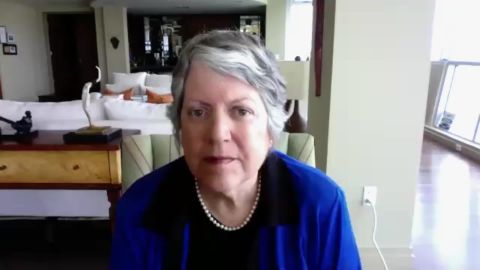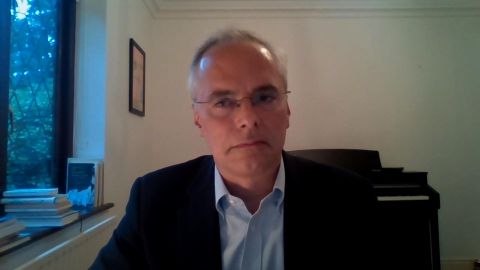Read Transcript EXPAND
CHRISTIANE AMANPOUR: Listen, may I just start by reading the relevant part of the 13th Amendment and get you to explain why it has been such sort of a misnomer. So, it says in part, neither slavery nor involuntary servitude except as a punishment for crime whereof the party shall have been duly convicted shall exist within the United States or anyplace subject to their jurisdiction. Khalil Muhammad, I had never understood that phrase and how it perverted, in fact, the cause of banning slavery in the United States. Could you first and then I’ll ask Deborah Peterson Small to fill in as well, describe how it has done that?
KHALIL GIBRAN MUHAMMAD, PROFESSOR OF HISTORY, HARVARD KENNEDY SCHOOL: Well, the 13th Amendment, as you just read, has almost universally been understood as the legislation that fundamentally ended 250 years of slavery. And therefore, the slavery loophole, which is the clause for punishment as a crime, has never really gotten the amount of scholarly or legal attention that it deserved. But in fact, it was activated literally overnight within months of the end of the civil war, the former confederate state, as they were going through a process of reconstruction turned to new criminal statutes in order to re- enslave that population of African-Americans. And so, it’s had incredible utility in the American political economy both in the south and across the nation.
AMANPOUR: So, let me then turn to Deborah Peterson Small — sorry, I mispronounced your name to begin with — why do you think that language was used there and continues to this day?
DEBORAH PETERSON SMALL, FOUNDER, BREAK THE CHAINS: Well, I think the thing we have to remember essentially is that racism is a product and in support of capitalism. And even though — and that slavery was basically a capitalist enterprise. And so, from the very beginning of the period after which black people were legally no longer enslaved, the same economic forces were looking for ways to continue to profit from free labor. And so, this exception in the statute regarding the ability to punish a person for conviction of a crime created the perfect opportunity. And I think it’s important to remember that the kinds of crimes that black people were being locked up for and convicted of were things like vagrancy, like stealing a pig, like doing basic kinds of survival crimes or misdemeanor offenses, many of the same kinds of things that are currently being used by our prison industrial complex to support mass incarceration.
About This Episode EXPAND
Epidemic expert Richard Hatchett gives an update on efforts to develop a COVID-19 vaccine. Khalil Gibran Muhammad discuss racism, mass incarceration and the war on drugs. Janet Napolitano, the president of the University of California, discusses the state of higher education amidst the pandemic.
LEARN MORE


